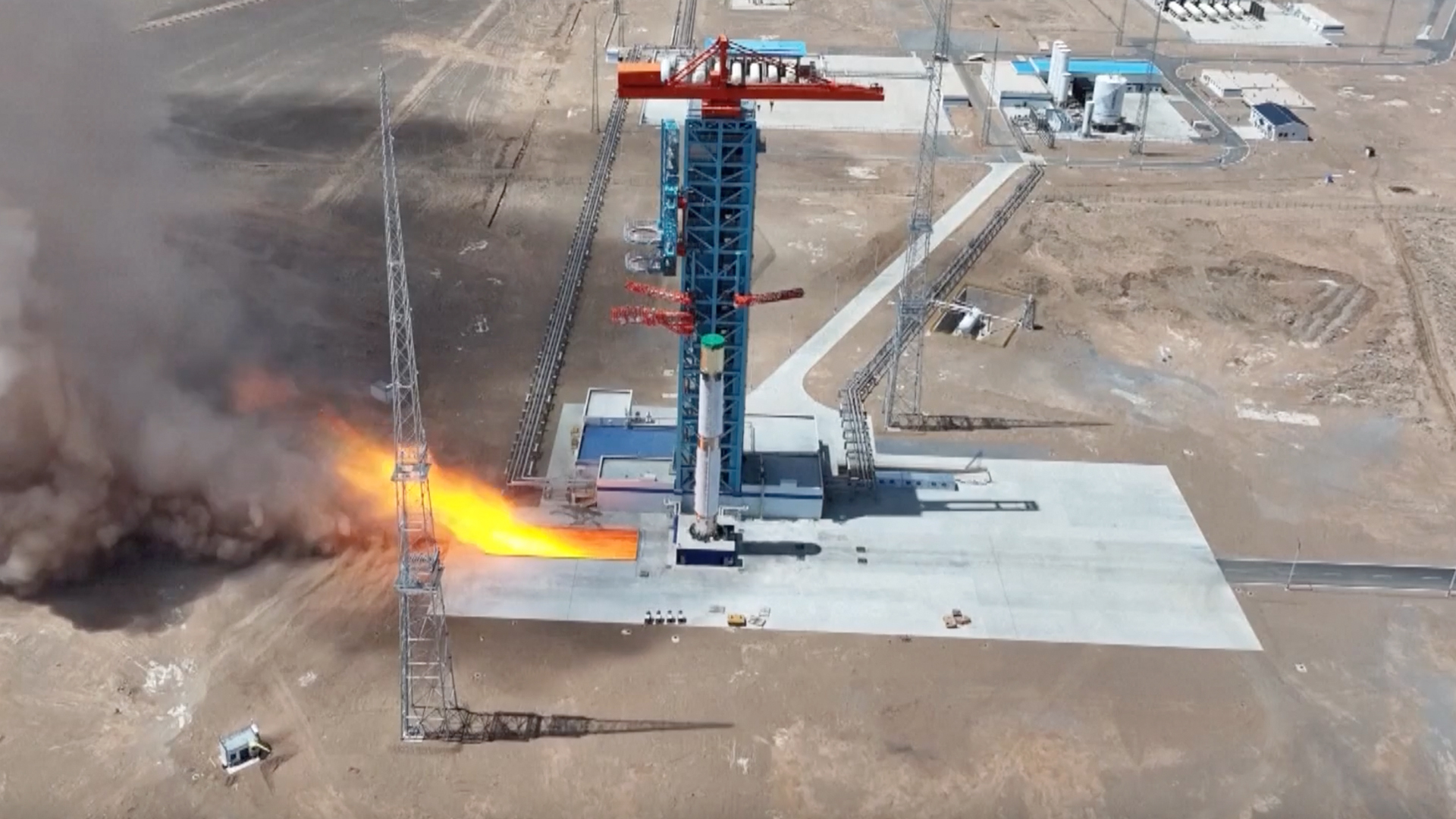Chinese commercial launch firm Landspace is gearing up for the inaugural flight of its reusable Zhuque-3 rocket, with a target launch date set for the final quarter of 2025. This rocket, made of stainless steel, features a reusable first stage that aims to secure contracts for launching satellites as part of China’s ambitious megaconstellation projects.
The Zhuque-3 has already undergone several tests, including launch and landing trials in the previous year. One of these test flights achieved an altitude of approximately 10 kilometers (around 6.2 miles) before executing a powered descent and landing safely. The first stage of the rocket is propelled by nine Tianque-12A engines, which were developed in-house by Landspace. Recently, the company completed a successful hot fire test, where all nine engines were ignited in sequence for a duration of 45 seconds.
Significance of the Zhuque-3 Rocket
The successful testing of the Zhuque-3 positions it for its first orbital launch later this year, as reported by CCTV. With the ability to transport up to 18,300 kilograms (around 40,350 pounds) to low Earth orbit (LEO) in reusable mode, the Zhuque-3 represents a significant advance for China’s space capabilities. The rocket is expected to stand approximately 66 meters (around 217 feet) tall, with future plans to extend it by an additional 10 meters (about 33 feet) and upgrade its engines to the next iteration, the Tianque-12B.
In comparison, China’s most powerful rocket to date, the Long March 5, can carry about 25,000 kilograms (approximately 55,100 pounds) to LEO. In the international landscape, SpaceX’s reusable Falcon 9 has a payload capacity of around 22,800 kilograms (about 50,265 pounds), highlighting the competitive nature of the commercial space launch market.
Challenges and Competitors
Landspace is one of the pioneering commercial rocket companies in China, having initially launched the solid propellant Zhuque-1 in 2018, which did not succeed. The company subsequently shifted its focus to the methane-liquid oxygen propellant of the Zhuque-2, which, in July 2023, became the first rocket using this propellant mix to successfully reach orbit.
The Zhuque-3 is entering a competitive field, facing rivals such as Space Pioneer, iSpace, Galactic Energy, and Orienspace. Additionally, state-owned China Aerospace Science and Technology Corp. is also developing its own reusable rockets, indicating a robust commercial launch environment in China.
As Landspace prepares for its upcoming launch, the success of the Zhuque-3 could significantly enhance the country’s capabilities in space exploration and satellite deployment, contributing to its growing presence in the global space industry.
